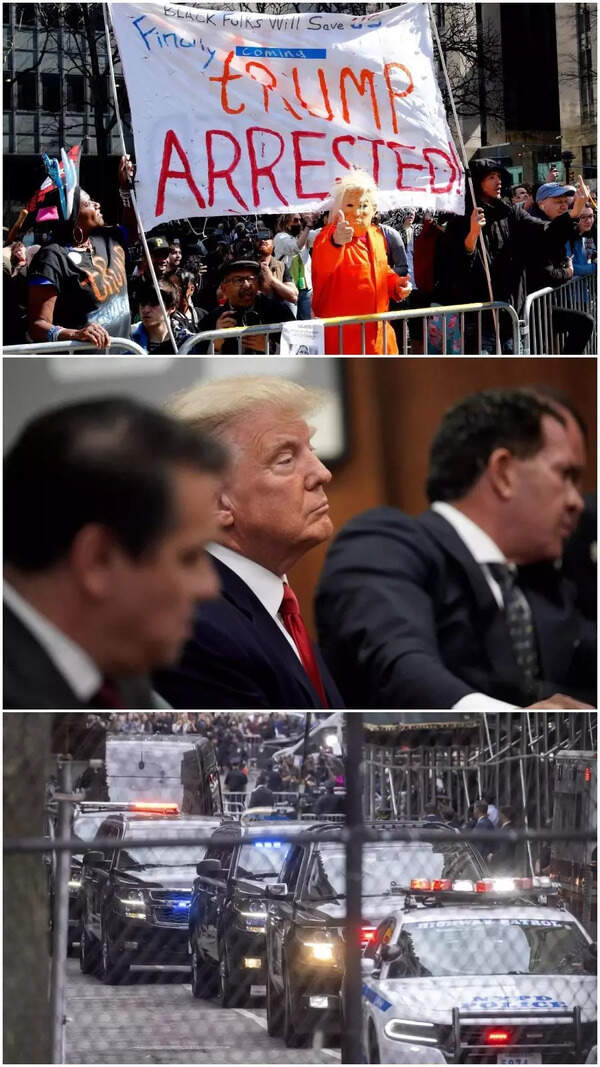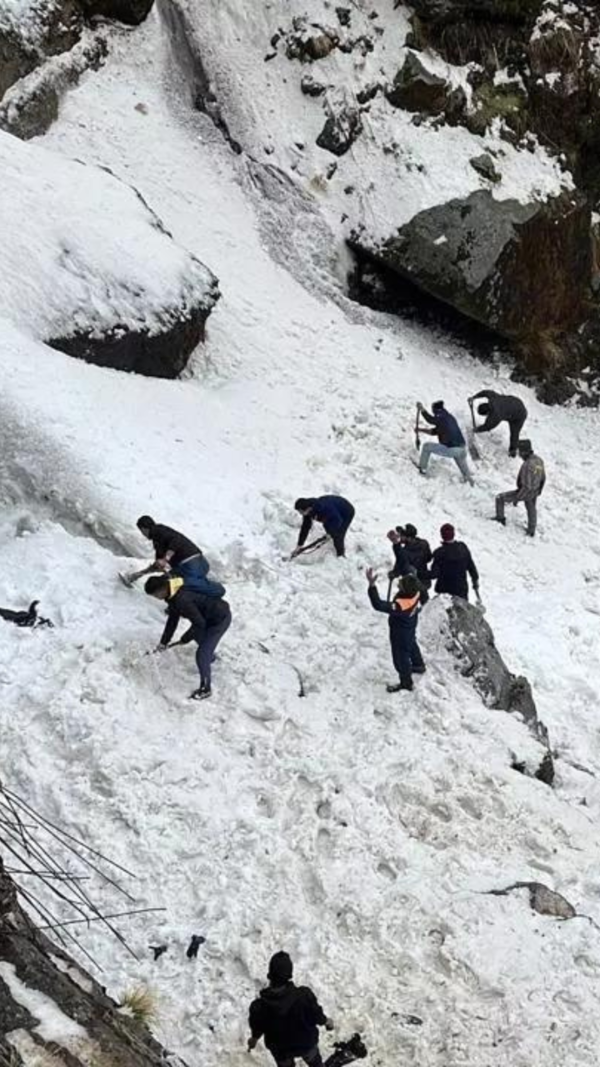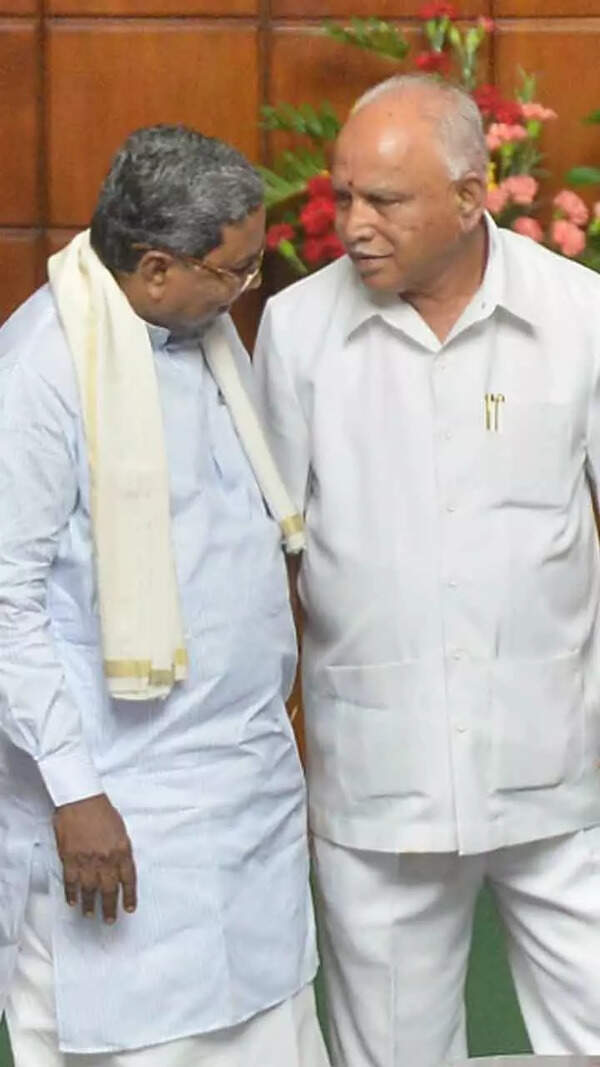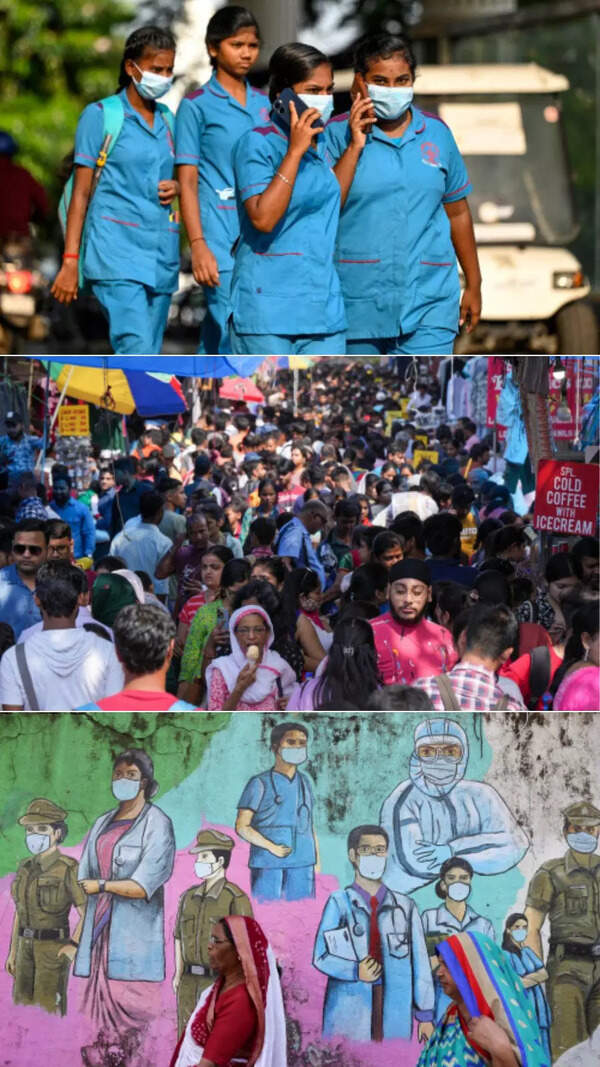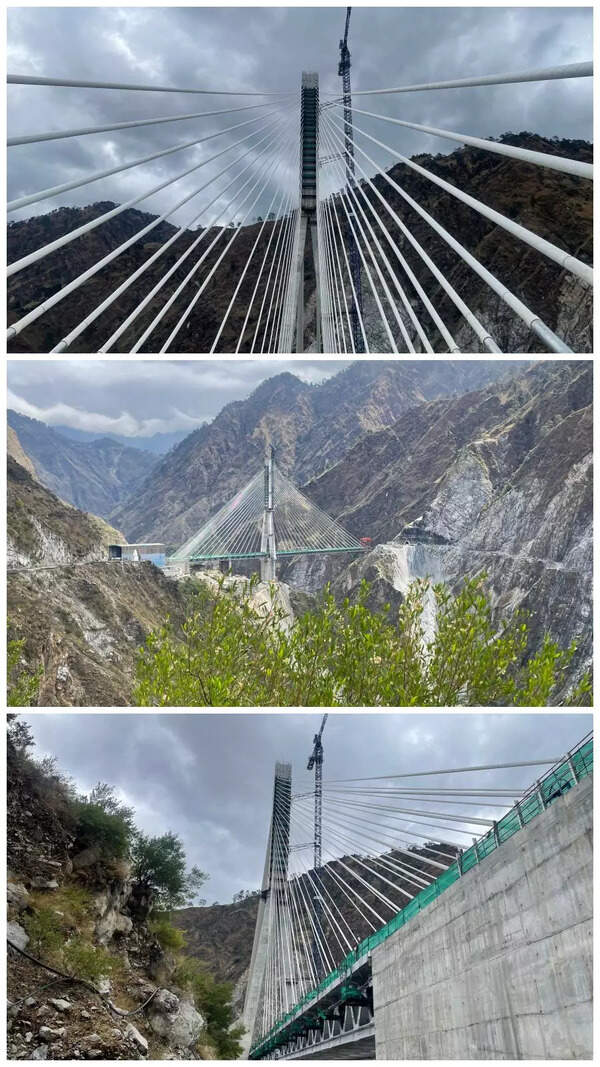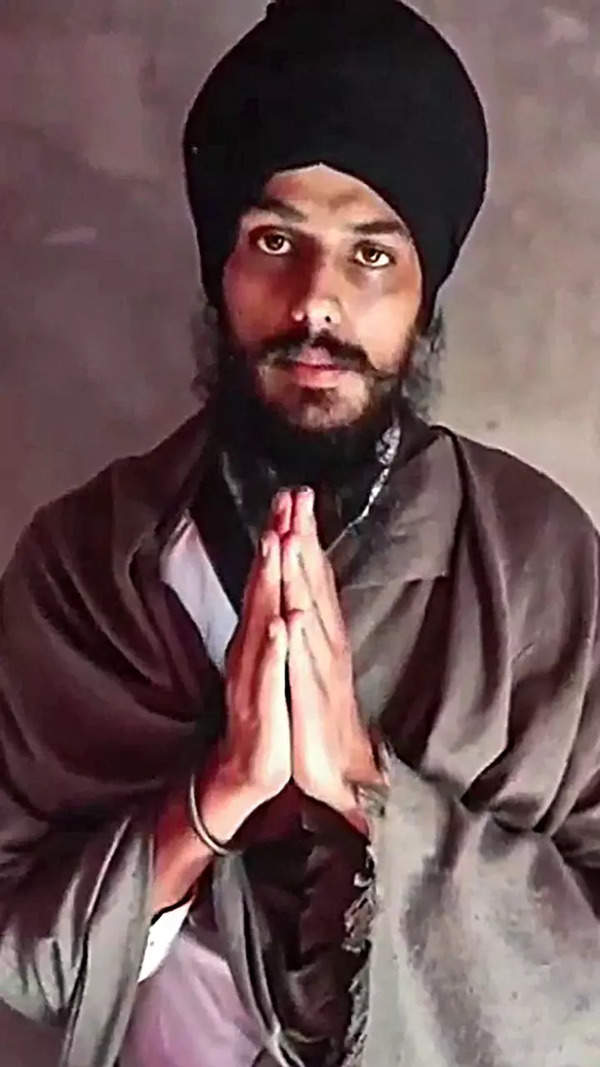- News
- India News
- Netas don't have immunity above that of citizens: SC
Trending Topics
Netas don't have immunity above that of citizens: SC
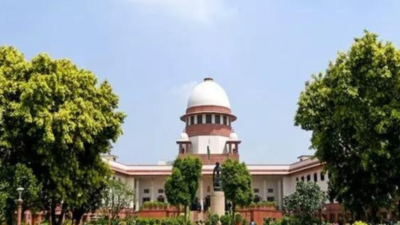
NEW DELHI: The Supreme Court pointed out Wednesday that the petition of opposition parties against the alleged misuse of investigative agencies presented a dilemma where the parties raised "selective targeting" but did not want to seek special treatment, and said it could not carve out an exception.
Appearing for the opposition parties, AM Singhvi said, "Misuse of CBI/ED to target political opponents by the governing party has a chilling effect on legitimate and constitutionally protected political speeches and activities. Clearly, there is a skewed application of CBI/ED jurisdictions to opposition political leaders. This leads to an uneven, non-level democratic playing field as the opposition leaders are forced to fight these cases. Democracy is a basic feature of the Constitution. We are not seeking to affect any of the pending cases. We want a future guideline to prevent uneven application of CBI/ED jurisdiction."
"You (the political parties) say there is selective targeting of opposition leaders. But at the same time, you say that you do not want any special treatment for politicians as they are only citizens of India. Then, how can we lay down guidelines saying if it is not murder, assault or child sexual abuse, no politician should be arrested. How can we carve out such an exception?" asked the bench led by CJI DY Chandrachud.
"This is a petition filed by 14 political parties. You give us some statistics. On the basis of the statistics, can we say there should be no investigation or no prosecution against political leaders if the offence is not heinous? Politicians are basically citizens and law will apply in the same rigour. Even though this petition focuses on politicians, they do not enjoy immunity higher than that of citizens," the CJI and justice JB Pardiwala said.
Singhvi said these political parties represent 42% of the electorate and "if their personnel are affected by misuse of CBI/ED, people in general are affected".
The CJI said, "Once we accept that political leaders stand absolutely on the same footing as citizens of the country, they will face the same due process of law and are not entitled to a higher immunity than what is available under law. Once you concede that, how can you say CBI/ED will not arrest unless the triple test is fulfilled?" Singhvi had said the probe agencies should resort to arrest a politician only if they have genuine reasons to fear that the accused may abscond, tamper with evidence or influence witnesses.
The bench said, "The difficulty in your petition is that you are trying to extrapolate statistics into binding legal guidelines which would effectively apply only to politicians. But the guidelines cannot apply only to politicians. If we agree with you and lay down the guidelines, we will be doing what the legislature essentially should do - the power of arrest is confined only to cases of child sexual abuse or bodily harm. How do we do that? In a given case, if the exercise of power (to arrest) is arbitrary, the aggrieved person can approach the appropriate court for relief."
Singhvi said the issue raised in the petition is directly related to the health of democracy and a level playing field. "We are questioning the mass arrest of only opposition leaders and requesting the SC to lay down general guidelines to prevent harassment of leaders of opposition parties," he added.
Justices Chandrachud and Pardiwala said, "We can evolve general principles based on facts of a case. But in the absence of facts of a case, for us to lay down general principles of law is a dangerous proposition."
Finding the SC's objections insurmountable, Singhvi sought withdrawal of the petition. The bench agreed and dismissed the petition as withdrawn.
Appearing for the opposition parties, AM Singhvi said, "Misuse of CBI/ED to target political opponents by the governing party has a chilling effect on legitimate and constitutionally protected political speeches and activities. Clearly, there is a skewed application of CBI/ED jurisdictions to opposition political leaders. This leads to an uneven, non-level democratic playing field as the opposition leaders are forced to fight these cases. Democracy is a basic feature of the Constitution. We are not seeking to affect any of the pending cases. We want a future guideline to prevent uneven application of CBI/ED jurisdiction."
"You (the political parties) say there is selective targeting of opposition leaders. But at the same time, you say that you do not want any special treatment for politicians as they are only citizens of India. Then, how can we lay down guidelines saying if it is not murder, assault or child sexual abuse, no politician should be arrested. How can we carve out such an exception?" asked the bench led by CJI DY Chandrachud.
"This is a petition filed by 14 political parties. You give us some statistics. On the basis of the statistics, can we say there should be no investigation or no prosecution against political leaders if the offence is not heinous? Politicians are basically citizens and law will apply in the same rigour. Even though this petition focuses on politicians, they do not enjoy immunity higher than that of citizens," the CJI and justice JB Pardiwala said.
Singhvi said these political parties represent 42% of the electorate and "if their personnel are affected by misuse of CBI/ED, people in general are affected".
The CJI said, "Once we accept that political leaders stand absolutely on the same footing as citizens of the country, they will face the same due process of law and are not entitled to a higher immunity than what is available under law. Once you concede that, how can you say CBI/ED will not arrest unless the triple test is fulfilled?" Singhvi had said the probe agencies should resort to arrest a politician only if they have genuine reasons to fear that the accused may abscond, tamper with evidence or influence witnesses.
The bench said, "The difficulty in your petition is that you are trying to extrapolate statistics into binding legal guidelines which would effectively apply only to politicians. But the guidelines cannot apply only to politicians. If we agree with you and lay down the guidelines, we will be doing what the legislature essentially should do - the power of arrest is confined only to cases of child sexual abuse or bodily harm. How do we do that? In a given case, if the exercise of power (to arrest) is arbitrary, the aggrieved person can approach the appropriate court for relief."
Singhvi said the issue raised in the petition is directly related to the health of democracy and a level playing field. "We are questioning the mass arrest of only opposition leaders and requesting the SC to lay down general guidelines to prevent harassment of leaders of opposition parties," he added.
Justices Chandrachud and Pardiwala said, "We can evolve general principles based on facts of a case. But in the absence of facts of a case, for us to lay down general principles of law is a dangerous proposition."
Finding the SC's objections insurmountable, Singhvi sought withdrawal of the petition. The bench agreed and dismissed the petition as withdrawn.
Start a Conversation
FOLLOW US ON SOCIAL MEDIA
FacebookTwitterInstagramKOO APPYOUTUBE

